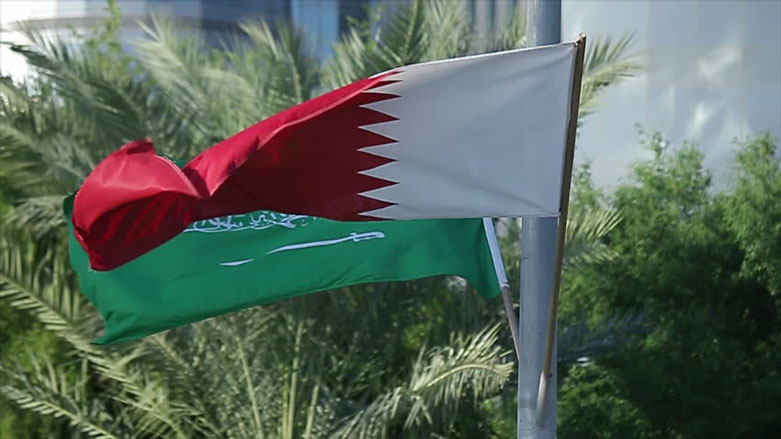US treads fine line between Saudi Arabia and Qatar

WASHINGTON DC, United States (Kurdistan24) - With the sudden eruption of a major rift between two US allies—Saudi Arabia and Qatar—senior US officials, particularly at the State and Defense Departments, are seeking to dampen the dispute.
On Monday, Saudi Arabia, Egypt, the UAE, and Bahrain all cut political and economic ties with Qatar, charging that it supported terrorists, as well as Iran.
Secretary of State Rex Tillerson, who was in Australia, along with Secretary of Defense James Mattis, said that evening, "I do not expect that this will have any significant impact on the unified fight against terrorism in the region or globally.”
Mattis spoke similarly, affirming he was “positive there will be no implications” from the dispute.
On Tuesday, both the State Department and Pentagon spokespersons reiterated their Secretaries’ position, despite three tweets from US President Donald Trump earlier that day siding with Riyadh against Qatar.
Qatar is, indeed, a supporter of terrorist organizations, including those the US has formally identified as such, including the Palestinian group Hamas, whose leader, Khalid Mashal, lives openly in the Gulf sheikhdom.
Qatar also hosts several senior Taliban officials and supports the Muslim Brotherhood, much to the irritation of the Egyptian government, although the US has not designated the Muslim Brotherhood a terrorist group.
Former State Department spokesperson, John Kirby, explained that the US has “long-standing concerns” about Qatar’s funding of terrorism, although he added that other countries—a likely allusion to Saudi Arabia—were also a problem.
The US faces a major constraint in criticizing Qatar, let alone taking action against it: Qatar hosts the biggest and most important US base in the Middle East.
As Pentagon Spokesman Capt. Jeff Davis told the media on Tuesday, Qatar’s Al Udeid Air Base is home to the “command and control of all of our air forces in the Central Command,” whose area of responsibility reaches from Egypt to Afghanistan and Pakistan. In short, it is the central theater in the war on terror.
Even the deconfliction hotline with Russia rings at Al Udeid, Davis explained.
Thus, on Tuesday evening, the White House issued a statement far more restrained than the President’s tweets that morning. Trump had spoken with Saudi King Salman, it explained, and they had discussed “preventing the financing of terrorist organizations and eliminating the promotion of extremism by any nation in the region.” Trump also “underscored that a united Gulf Cooperation Council—the regional security organization of which Saudi Arabia and Qatar are both members—“is critical to defeating terrorism.”
Qatar is an extremely small country. Most of its three million inhabitants are foreigners, and only 10% of the population, some 300,000 people, are actually Qatari citizens. But for some years, Qatar has been seeking to play an outsize role in the international arena.
That is the impulse behind Qatar’s sponsorship of Al-Jazeera, as well as its repeated efforts to host the Olympics, although it lacks the climate for winter games and is searingly hot in the summer.
Instead, Qatar will host soccer’s 2022 FIFA world cup, with the games moved from June or July, when they are usually held, to November or December.
Former US Secretary of Defense Robert Gates explained Qatar’s motives at a Washington conference last month, in which he described its multiple, conflicting alliances.
“They want to have a relationship with everybody so that they can maneuver and, I think, play this role on the world stage that contrasts dramatically with the size of their country,” Gates said.
Editing by G.H. Renaud
